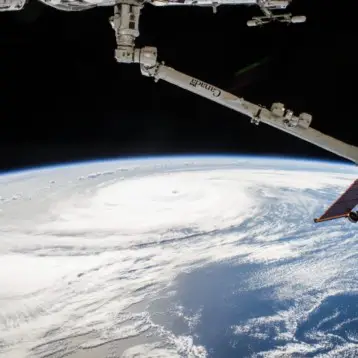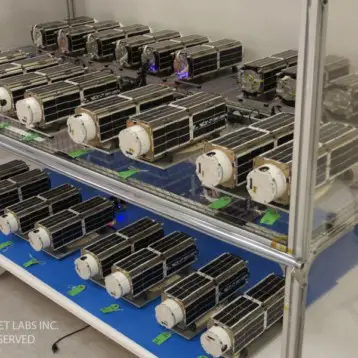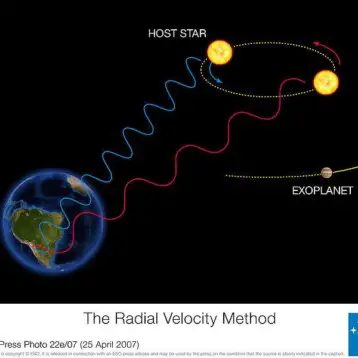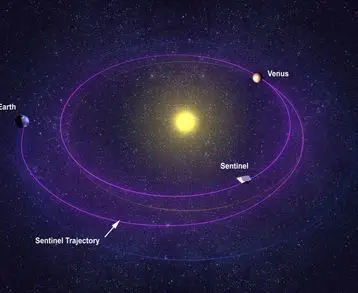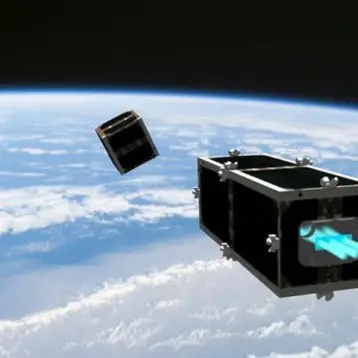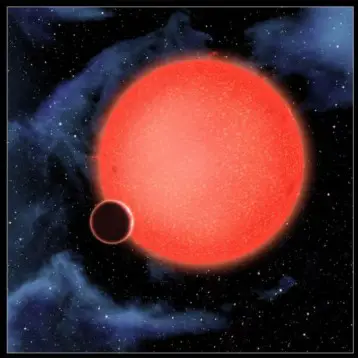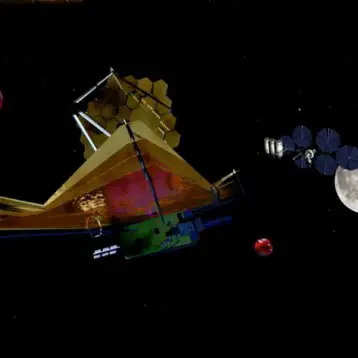
Eureka Manifesto: The Mission for Our Civilization is a compelling read for anyone fascinated by the secrets of the cosmos. In the book, philanthropist and tech investor Yuri Milner lays out a plan to untangle these secrets. Doubling as a personal statement on advancing science and human progress, this is a short yet inspiring read.
Milner’s idea for Eureka Manifesto formed during his childhood when he read Iosif Shklovsky and Carl Sagan’s Intelligent Life in the Universe. Since then, he has been gripped not only by the possibility that intelligent beings live in the Universe, but also that we ourselves are examples of these intelligent beings.
The year Milner was born, Sagan and astronomer Frank Drake hosted the first scientific conference on how we, as humans, might communicate with extraterrestrial beings. They went on to use the Arecibo radio telescope to scrape the cosmos for interstellar messages. In the 60 years that followed, no messages have become apparent.
But when Milner went on to visit the Arecibo with Drake, he realized that although he can’t yet communicate with other intelligent beings, he can communicate with humanity — with us — and Eureka Manifesto is his message.
Key Messages in Yuri Milner’s Eureka Manifesto
In Eureka Manifesto, Milner makes the case that it’s up to humanity to explore the Universe.
As individuals and in small groups, we often achieve amazing milestones. However, when we operate as a civilization, we become chaotic. For example, we have the luxury of shared resources, often in abundance, but we fail to use them to solve our biggest challenges.
Instead, we prioritize short-term needs over long-term gains. We squabble over the little details instead of looking towards the future we could be building. If we committed to developing our understanding of the Universe, we would embrace a helpful, collective mission.
In short, finding a common goal is essential. The world’s most successful organizations have goals that their hundreds of thousands of employees all embrace. Netflix’s is to entertain the world. Google’s is to organize global information and make it easy to access. Facebook’s is to bring the world closer together.
What is our — humanity’s — goal? If we can’t agree on one within our world, we can find the answer further afield: in the Universe.
The Costs of Failure
Milner explains that we are the only sentient beings on Earth capable of investigating the Universe. If we don’t take our search seriously, its mysteries could remain unsolved for millennia. We may even risk our civilization becoming extinct.
In Eureka Manifesto, Yuri Milner lists the costs of failure we may endure if we don’t peel back the layers of the Universe. Some of these costs include failed enlightenments and extinction events.
Failed Enlightenments
The creation of complex life likely came more than a billion years after the first cells emerged in the Universe. This means there could have been an infinite number of moments where complex life nearly formed before it succeeded. And if chance events had gone differently, it could have been a billion more years before a complex cell formed.
Not only is the dawn of complex life unlikely, but this life can also be taken away easily. The ocean can erode entire islands to nothing. Ice melts, and enlightenments fail. Our civilization is not immortal.
However, our civilization could become immortal if we adopt the shared mission to explore and understand the Universe.
Extinction Events
Dangers stemming from beyond Earth could theoretically wipe out humanity. Milner gives the example of a large asteroid or comet colliding with the planet. While rare, a collision will occur around once every 200 years, like the one that extinguished dinosaurs. The likelihood of this happening is incredibly low. But the longer we wait, the more likely it is that the improbable will become inevitable.
On top of the natural threats to life, we create our own. War, bioterrorism, and climate change all pose risks to humanity and would be alleviated if we embraced a collective mission focused on the Universe.
If we succeeded in expanding our civilization beyond Earth — perhaps on a planet like Mars and then on planets further afield — we could protect our species should an extinction event occur. This is especially important given that Earth won’t have the conditions to sustain us in a few billion years. Our species will die out if we let it.
The Rewards of Success
While the risks of rejecting our mission are sizable, if we embrace this mission, humanity will enjoy a greater purpose. We’ll achieve incredible technological developments. We may even be able to expand into a space-faring civilization.
Technological Developments
Embracing our mission to explore the Universe would involve allocating more of our resources toward scientific research. In doing so, along the way, we would likely make discoveries that would solve humanity’s biggest challenges. From finding cures to diseases to overcoming climate change and energy scarcity, even our smaller wins along the journey would be colossal.
Galactic Civilization
Our farthest footprint from Earth is on the Moon — a milestone reached more than half a century ago. Once a celebration of our progress, this is now a reminder that we haven’t progressed since.
Progress should resume soon, though. Government space programs and private initiatives from minds like Jeff Bezos and Elon Musk will see a new wave of space exploration.
Continue this exploration, and we could see more than our current glimpse of the bounty of worlds in the Universe, from planets like ours to super-Earths, water worlds, potentially habitable moons, and possibly even planets made of diamond.
Yuri Milner’s Five Steps to Achieve Our Shared Mission
It’s not too late for us to embrace our mission. To get started, Milner has proposed a five-point plan of action. First, we must invest resources in fundamental science and space exploration. This will lay the groundwork to unlock scientific discoveries and technological progress that pave the way for us to become a space-faring civilization.
Next, we must leverage artificial intelligence to fuel scientific progress. Offering immense potential, AI could dramatically accelerate our progress as we research life beyond ours.
Third on the list, we must celebrate scientists as heroes. When we raise the profile of those who are changing the world, we inspire the next generation to follow in their footsteps.
Similarly, we must focus education on the Universal Story and use art to tell it. The Universal Story brings together everything we know about our planet, the Universe, and human civilization. When we tie all of this together, children can understand our position now and be in a better position to contribute to its development.
Lastly, we must spark a new enlightenment where we all contribute to a shared culture of knowledge. Only a few people will make the discoveries that change the world forever, but we can all cultivate the conditions that will allow these discoveries to unfold.
Eureka Manifesto is a publication of significance. Following its guidance could have an immense impact on scientific advancements.
Philanthropic Projects Exemplified in Eureka Manifesto
Milner has created ventures that support his proposed action steps. He created each after signing the Giving Pledge in 2012, committing to donate the majority of his wealth to philanthropic ventures.
To aid the investment of resources into fundamental science and space exploration, he has co-created the Breakthrough Initiatives. These five space science programs each explore a different corner of the search for extraterrestrial intelligence (SETI).
To celebrate scientists as heroes, he has co-launched the Breakthrough Prize, which rewards leading researchers in fundamental physics, the life sciences, and math with $3 million prizes. They celebrate their prize wins at an annual awards ceremony dubbed “The Oscars of Science.”
To inspire young people in scientific fields, he has co-founded the Breakthrough Junior Challenge. This global contest sees teenagers from all walks of life create short videos on complicated scientific matters, making these concepts easier to understand for people everywhere. The winner receives life-changing prizes, from a college scholarship to $50,000 for a teacher who inspired them and a new science lab for their school.
Each of these projects reflects Milner’s long-term vision for supporting scientific progress and resonates with the five-step plan mapped out in Eureka Manifesto. The publication serves as a guiding document for his investments in transformative projects, and it could guide others on their philanthropic journeys too.

